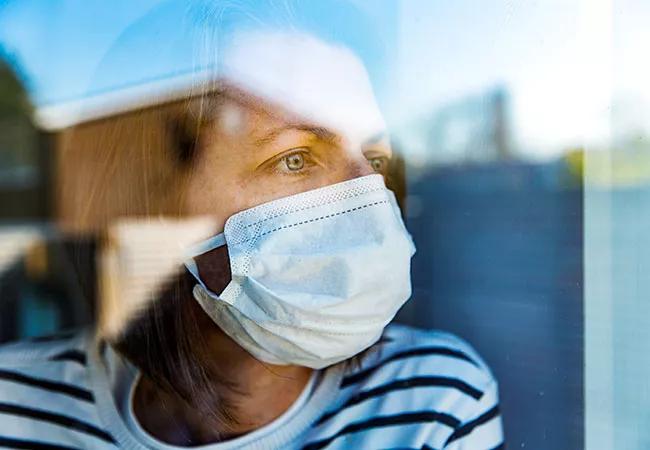When to change treatment strategy

Early data from an ongoing clinical trial show that patients with active or previous malignancy who contract COVID-19 have high 30-day all-cause mortality associated with both general risk factors and those unique to patients with cancer. This multinational study, recently published in The Lancet and part of the COVID-19 and Cancer Consortium (CCC19), is the largest series published to date of patients with cancer and COVID-19.
Advertisement
Cleveland Clinic is a non-profit academic medical center. Advertising on our site helps support our mission. We do not endorse non-Cleveland Clinic products or services. Policy
“We suspected that patients with current or past malignancies who got COVID-19 would have poorer outcomes,” says Nathan Pennell, MD, PhD, Director of Cleveland Clinic Cancer Center’s Lung Cancer Medical Oncology Program, “but the only reports in the literature were case reports or small, single-site studies. Using the CCC19 data gave us a larger number of patients from a wide geographic area from which we hoped to make more generalizable claims.”
In March 2020, the CCC19 registry database began collecting information from over 100 institutions on clinical characteristics and course of illness in patients with COVID-19 and a current or past cancer diagnosis. Researchers analyzed 982 patients from the database. Half the patients were male, and median age was 66 years. Thirty-nine percent were on active anticancer treatment, and 43% had measurable cancer. Thirteen percent of patients died by the date of analysis (May 7, 2020).
Researchers found that, after partial adjustment, general risk factors independently associated with 30-day all-cause mortality included increased age, male sex, treatment with azithromycin plus hydroxychloroquine and smoking status. Cancer-specific risk factors included Eastern Cooperative Oncology (ECOG) performance status of 2 or higher and active cancer. Researchers found no association between mortality and recent cytotoxic or noncytotoxic therapy or recent surgery.
“It’s important to note that while we did see an association between 30-day all-cause mortality and treatment with azithromycin plus hydroxychloroquine, we can’t say for sure that it helped or hurt patients, given that this is a non-randomized study with potential confounders,” notes Dr. Pennell.
Advertisement
Study results offer implications for the clinical management of patients with cancer during the COVID-19 pandemic.
“We demonstrated that patients with active cancer as well as those on anticancer treatment are at greater risk of severe illness and death,” says Dr. Pennell. “Oncologists should emphasize the importance of infection prevention measures to their patients, especially as stay-at-home orders expire and people are going out more.”
Researchers also note an increased need for COVID-19 surveillance and testing, minimized healthcare system exposure and scrutiny of certain procedures and treatments in patients with cancer or on cancer treatment. Patients with an ECOG performance status of 2 or greater who may otherwise have been indicated for aggressive therapies may need to have different advanced planning discussions if they contract COVID-19.
“Interestingly, we found that delaying surgery or therapy isn’t necessarily the right thing to do,” says Dr. Pennell. “This is important for hospital policy and clinical decision-making. Though our study was retrospective, it’s the best data we have right now to say that stopping cancer treatments does not reduce COVID-19 deaths in these patients, but that reducing exposure to healthcare settings where we can is important.”
The CCC19 continues to expand as it seeks to understand risk mitigation strategies for patients with cancer and provide critical information to clinicians during this ongoing crisis. Future studies will include longer follow-up, larger cohorts and closer looks at risk factors, medications, comorbidities and cancer and treatment types.
Advertisement
Advertisement

The shifting role of cell therapy and steroids in the relapsed/refractory setting

Radiation therapy helped shrink hand nodules and improve functionality

Standard of care is linked to better outcomes, but disease recurrence and other risk factors often drive alternative approaches

Phase 1 study demonstrates immune response in three quarters of patients with triple-negative breast cancer

Multidisciplinary teams bring pathological and clinical expertise

Genetic variants exist irrespective of family history or other contributing factors

Study shows significantly reduced risk of mortality and disease complications in patients receiving GLP-1 agonists

Structured interventions enhance sleep, safety and caregiver resiliency in high-acuity units